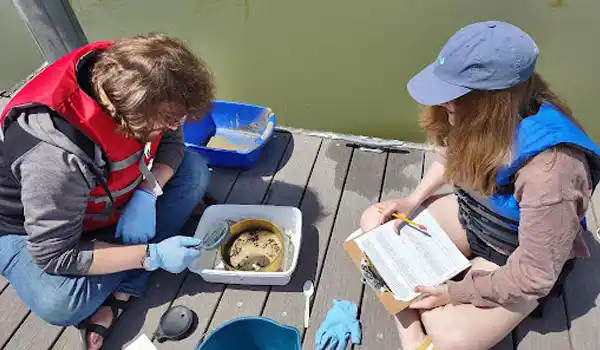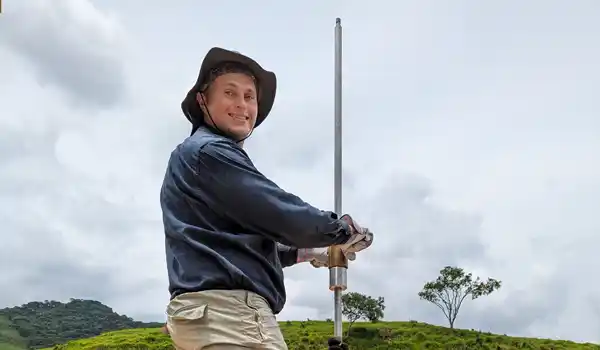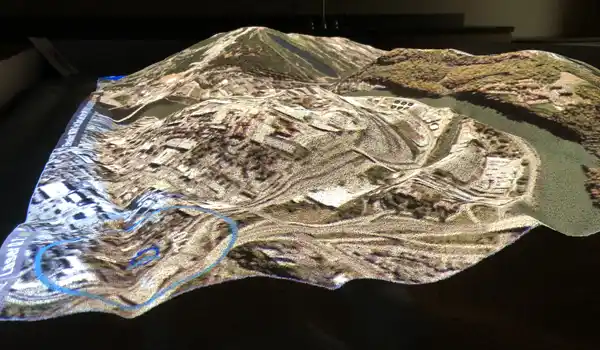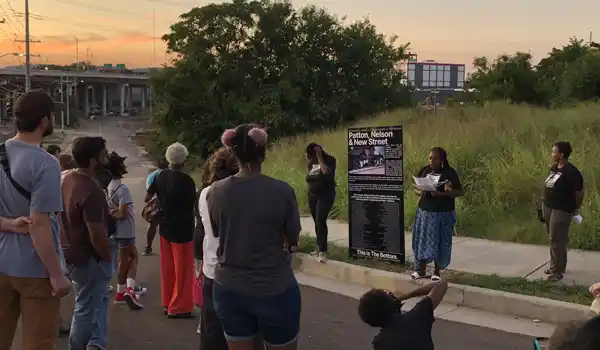
Climate Change Minor
The Climate Change minor provides students with the knowledge necessary to understand past, present, and future global climate patterns and trends. Courses focus on understanding the foundations of global climate patterns, how climate has changed through time, and how climate change has affected people, plants, and animals, the landscape, and natural hazards.

Broadcast Meteorology Minor
The Broadcast Meteorology minor is an interdisciplinary program between the Department of Geography and the School of Journalism and Electronic Media. Students will learn about meteorology, climatology, and weather forecasting, and develop skills to research, write, produce, and effectively deliver stories on camera.

Geography Minor
The geography minor reflects the discipline’s three main areas – human geography, physical geography, and spatial analysis. The department’s courses allow students to explore the linkages between human activities and natural systems. Students taking geography courses should develop factual knowledge, critical thinking, and analytic skills. Training in geography allows students to know where things are located, why they are located where they are, how and why places differ, how human activity shapes and is shaped by the natural environment, and how to analyze human-environment interactions. A minor in geography consists of 15 hours of geography courses at the 300 level or above. Geography 490, 491, 492, 493 may not be counted toward the minor without departmental permission.

Geographic Information Science and Technology Minor
Geographic Information Science Minors develop knowledge of geographic data processing, analysis, and visualization skills to complement their chosen Major discipline. Students learn to analyze and visualize spatial data and develop skills that can be applied to the development, understanding and processing of spatial data. The GIScience minor can improve job prospects and widen students’ intellectual and professional development.

Urban Studies Minor
Students will learn about the major topics, issues, and problems currently confronting cities in different parts of the world. They will be asked to analyze and study these topics and issues and to think about their different effects on local and global communities. Students will also be able to draw from their major to apply their knowledge and experience to urban issues and topics. They will be expected to analyze information, apply it to different urban contexts and to critically think about possible solutions, other approaches and/or alternative frameworks or theories.

Sustainability Minor
The Sustainability minor provides students with the opportunity to add the timely and important study of sustainability to accompany their major. Students pursuing a minor in sustainability will gain foundational knowledge from the course Sustainability – Principles and Practices followed by 12 additional upper-divisional credit hours of their choosing among the subfields of Sustainability and Society, Sustainability Policy and Development, and Sustainability and the Environment.

Applications of Uncrewed Aerial Systems Minor
The undergraduate minor in Applications of Uncrewed Aerial Systems provides students with the skills and knowledge necessary to effectively use drones (Small Uncrewed Aerial Systems, sUAS) in variety of business and public sector domains. The program will prepare students to operate sUAS in a safe and responsible manner and to become licensed sUAS pilots.
